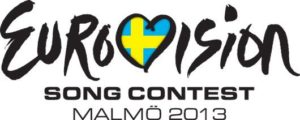
This year we are seeing quite an explosion in the number of countries who have chosen to sing in their native language at the Eurovision Song Contest. EuroVisionary look deeper into some of the reasons behind this.
As usual all songs in the Icelandic selection was performed in Icelandic – and just as we were waiting for Iceland to present its English version to be used for the Eurovision Song Contest the broadcaster surprised us all by announcing that the song will also be in Icelandic for the contest in May. That many had not seen coming, but Iceland is just doing what nearly half of the participating countries are doing this year; singing in their native language.
For the 2013 contest a total of 19 out of the 39 entries will be performed in their native language which is equal to 48,7%. In 2012 this number was 38% and in 2011 it was all the way down to 25,5%. In 2010 the percentage was 38,5 and in 2009 it was 35,7.
Through many years we have heard the Icelandic broadcaster and others say that they prefer English for the Eurovision Song Contest as they believe that it is an advantage that more people can understand what your participant is singing about. But what has changed?
There can be many reasons for the increased interest for singing in the native language, just as it might just be a coincidence. For quite some years most European countries have suffered from the global economical crisis, which is still not over. Many households use such a crisis to look inside and to focus on the values inside themselves and in the nearest family. If broadcasters do the same they might re-discover the charm about their own language.
It might however be more than just charm, which makes a broadcaster decide to sing in their native language at the Eurovision Song Contest. If might be a calculation that the local market is more important than the chance for an international success which only happens to few. In many countries songs in the native language sells better than English versions by local names.
There can also be political reasons behind the choice of the native language over English. With many of the participating countries being a member of, or closely connected to, the European Union, which is considered to be quite in crisis at the moment, some countries are afraid of losing too much of themselves. In order to compensate they become more nationalistic on the areas they can still control. Such an area is the Eurovision Song Contest.
This year we have even seen an unusual case from Moldova. Aliona Moon won the national final with a song in English, A Million, but it has afterwards been decided that on stage in Malmö she will sing it in Romanian with the title O Mie. This happens rarely. The last example of this way of swapping language goes back to 1998 where Lars Fredriksen won the national final in Norway with the song All I Ever Wanted (Was You). Before the song reached the Eurovision Song Contest final it had been changed to be in Norwegian and given the title Alltid Sommer. Back then we however still had the language rule that said that all countries should perform in their native language and as such the Norwegian change was necessary, where as the Moldovian situation this year is by own choice.
You might also want to read:



















